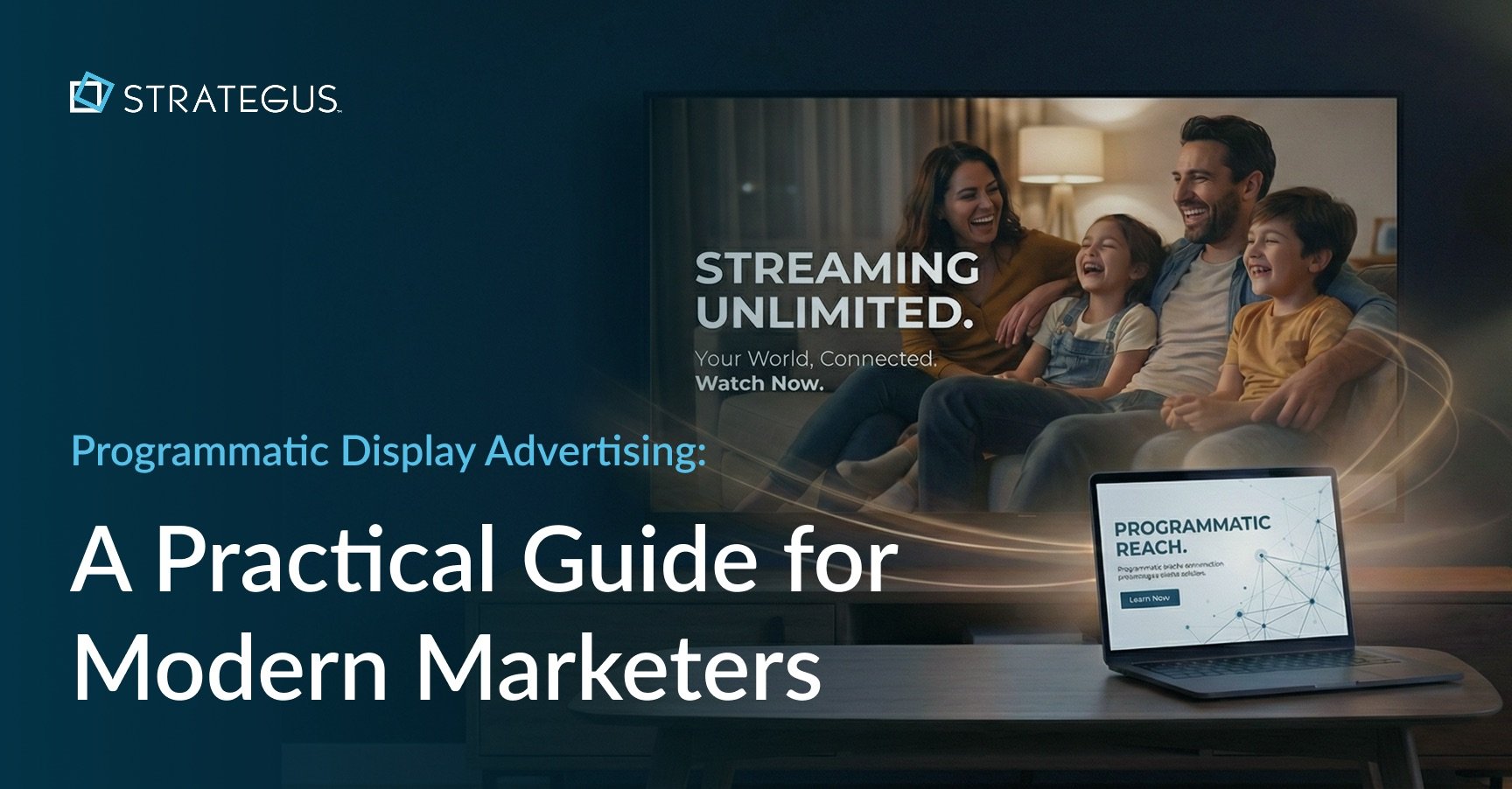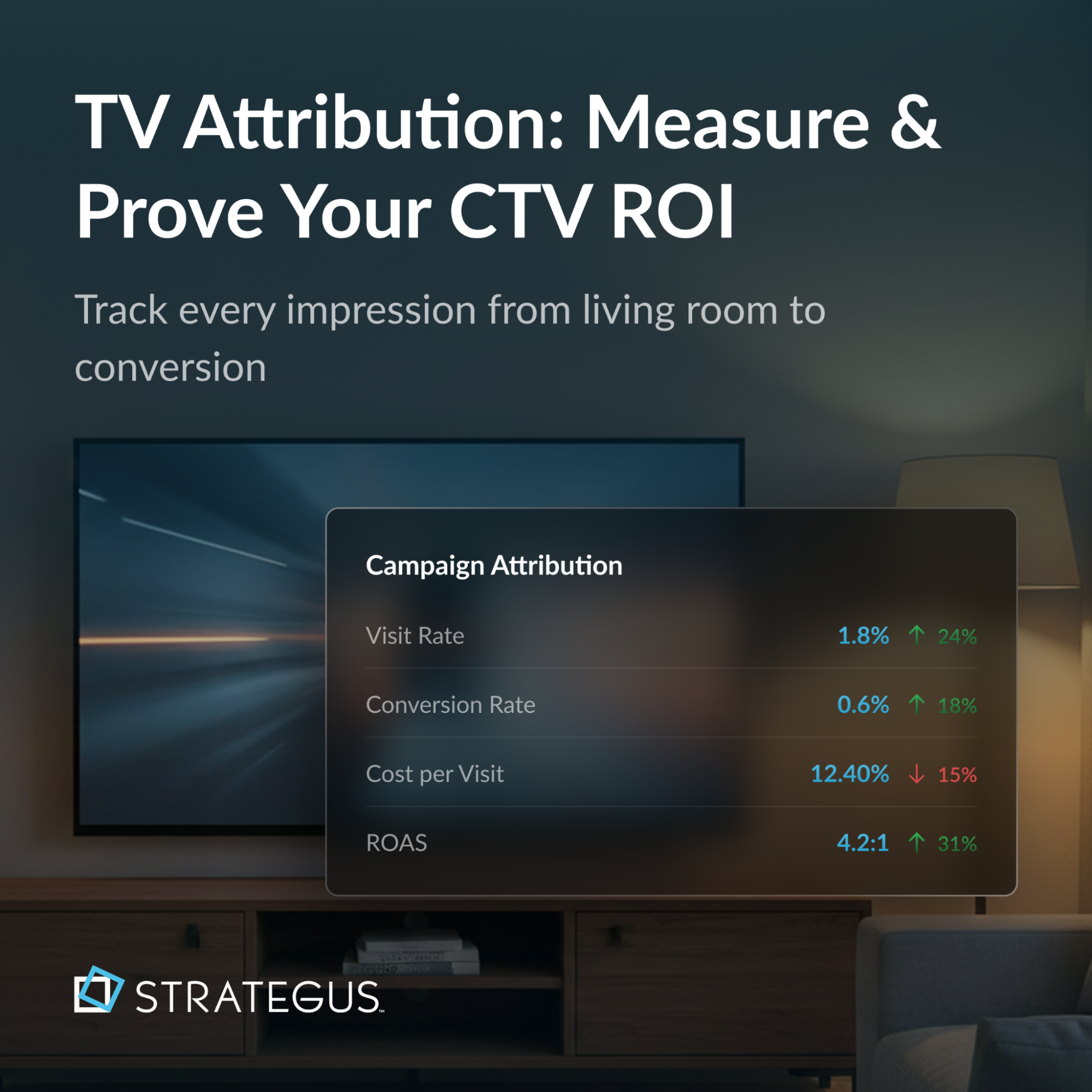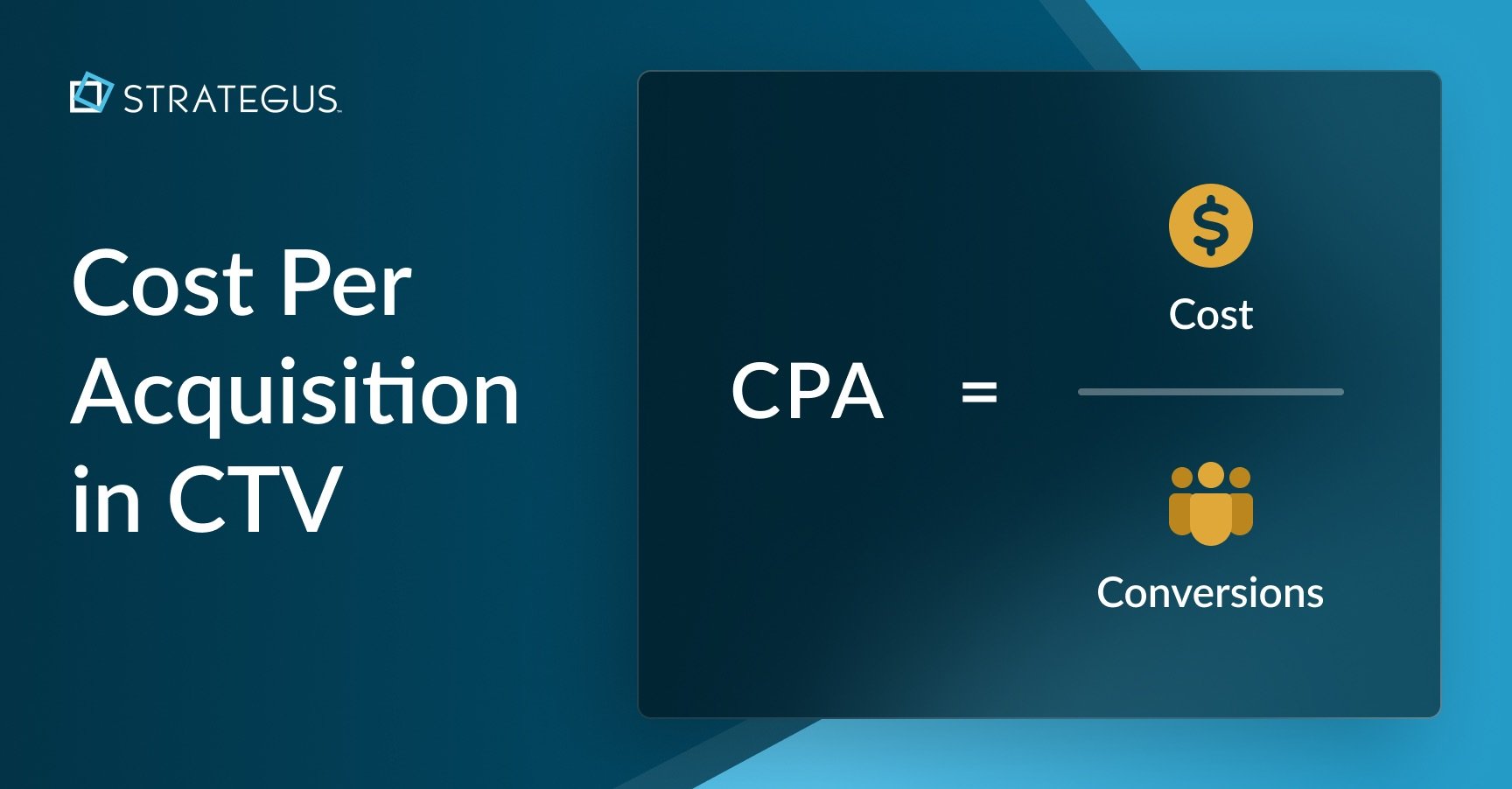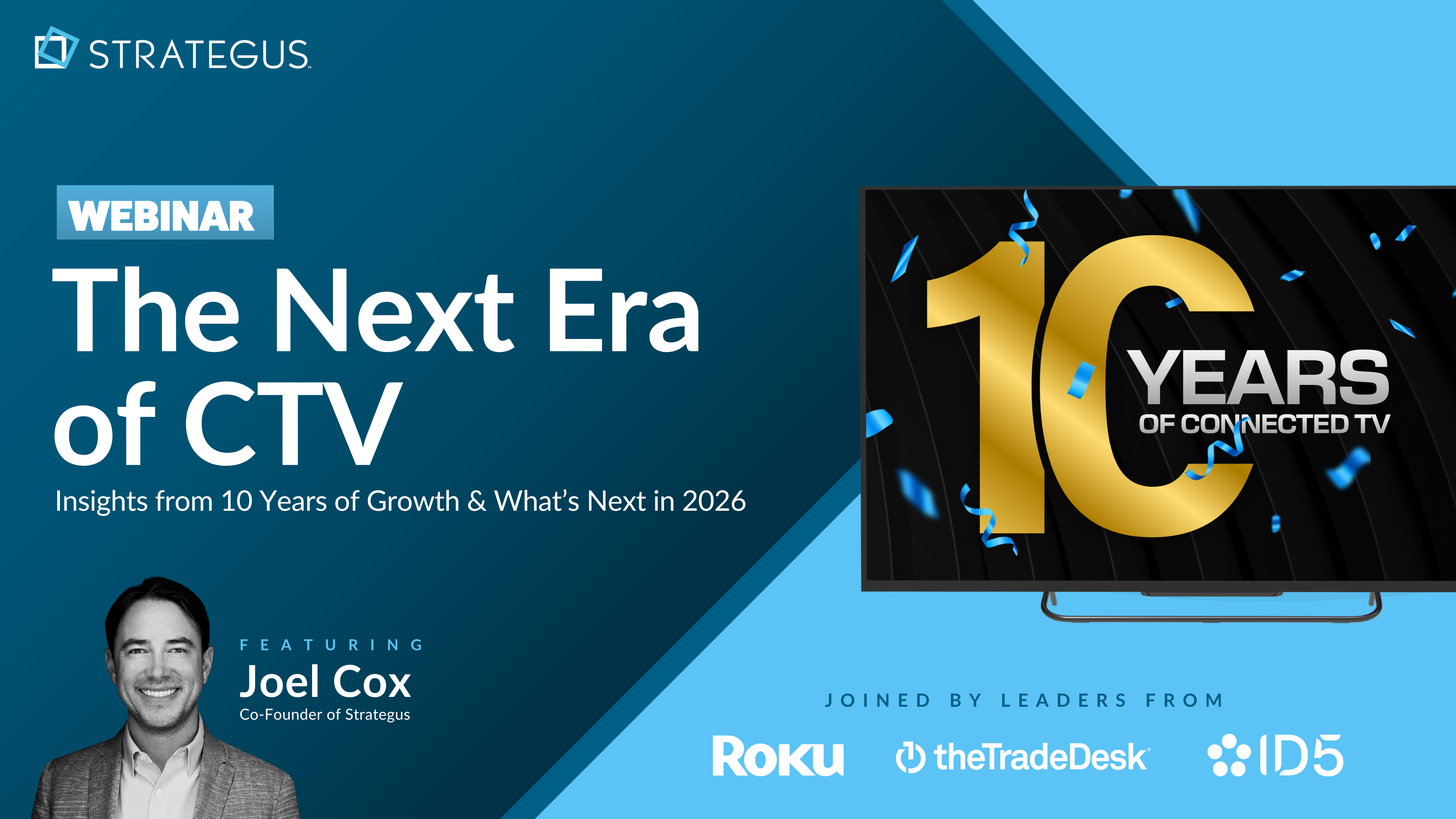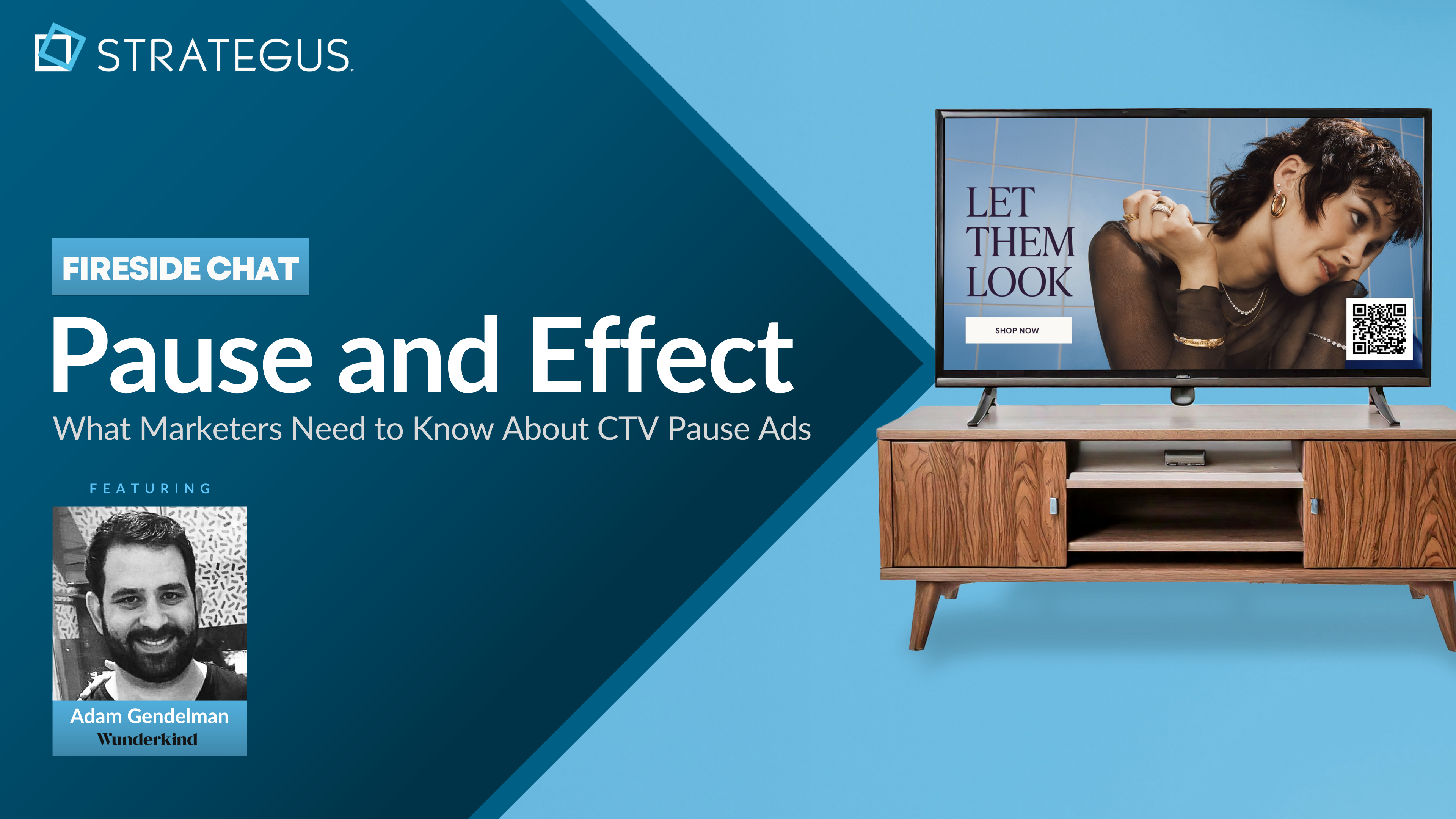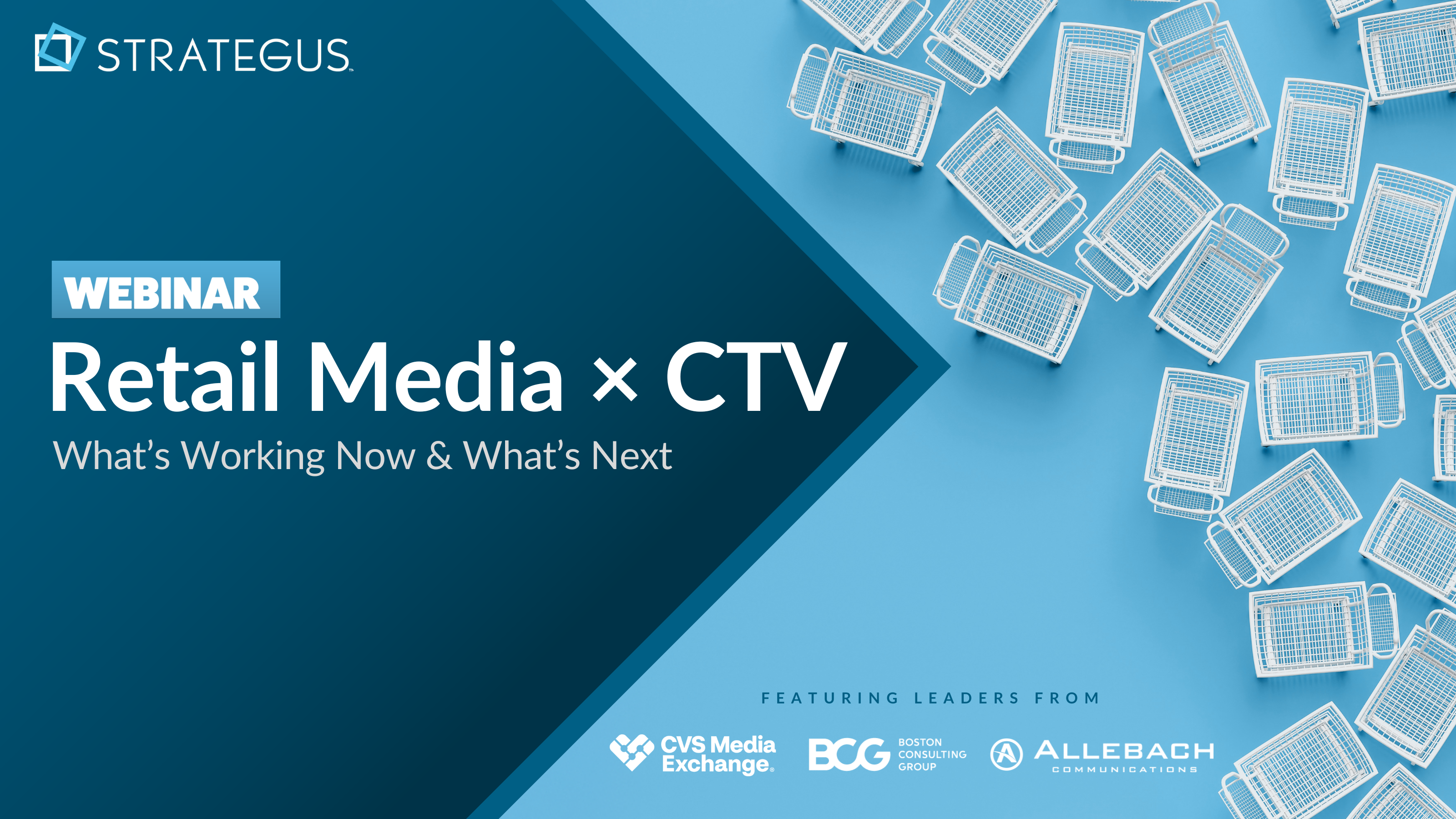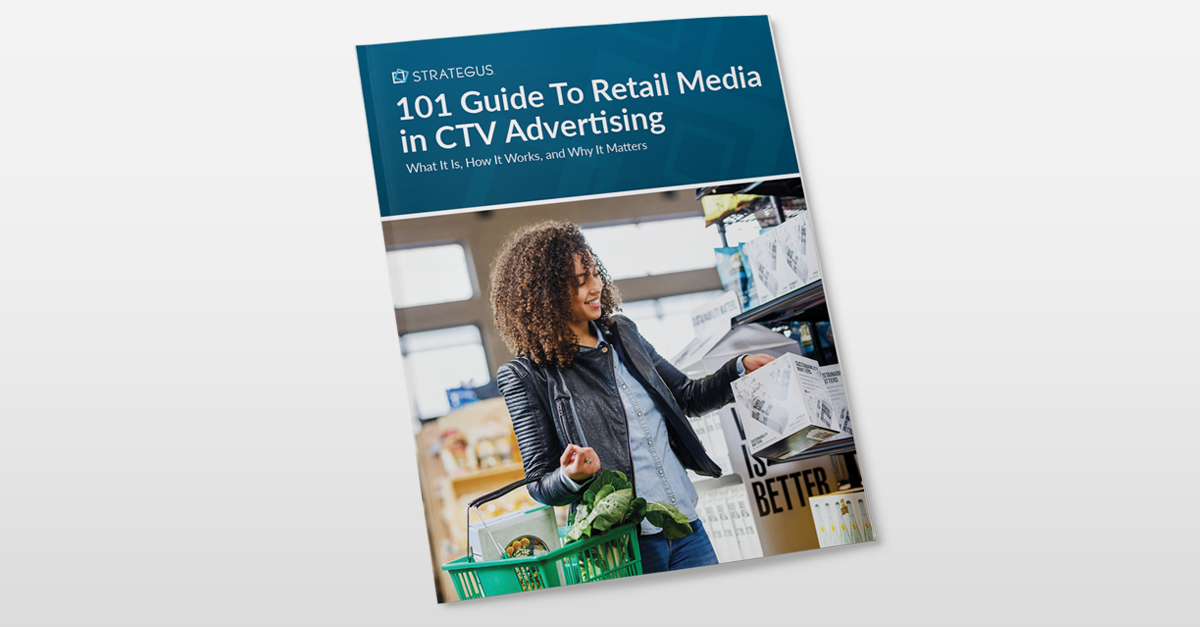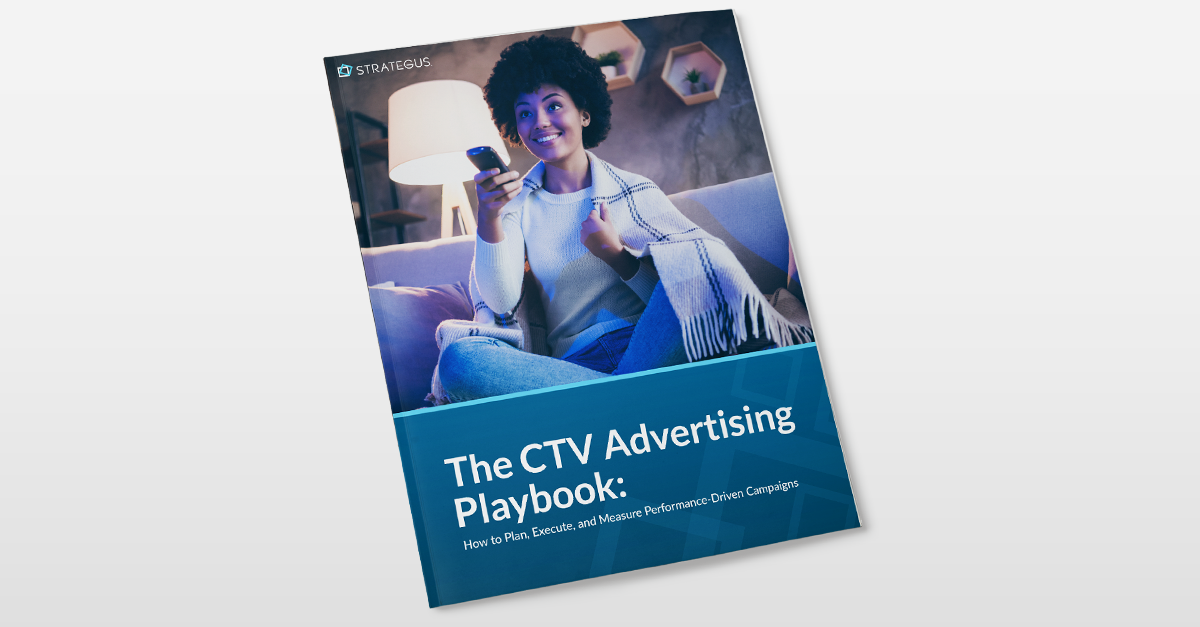- Home
- Strategus Blog
- Cookieless Advertising After iOS 15: 2025 Marketer’s Guide
Cookieless Advertising After iOS 15: 2025 Marketer’s Guide
 Andy Dixon
Andy Dixon
11 minutes read

Struggling to reach the right audience after Apple’s privacy updates? With iOS 15 and beyond, cookies no longer give you the data they once did, and this makes ad targeting harder.
But now that the industry has had some time to catch up, there are ways to target customers and get similar, or even better, results. This guide shows you how to run smarter, cookieless campaigns in 2025.
Key Takeaways
- After iOS 15 and stricter laws, cookies and cross-site identifiers lost reliability; ATT, ITP, Mail Privacy, and GDPR/CCPA reshaped targeting and measurement.
- Replace third-party cookies with first-party and zero-party data, collected via sign-ups, loyalty programs, preference centers, and value exchanges that encourage consented sharing.
- Use contextual and semantic targeting, identity frameworks like hashed emails or Universal IDs, publisher cohorts, clean rooms, and probabilistic modeling to reach audiences and measure lift.
- Build cookieless campaigns by partnering with premium publishers and walled gardens, applying AI for optimization and lookalikes, and prioritizing incrementality testing, GA4, and privacy-first analytics.
- Mitigate risks around data sparsity, model bias, compliance, and trust with clear consent, vendor due diligence, continuous testing, and a phased short-, mid-, and long-term roadmap.
- Future-proof performance without cookies using Strategus: premium CTV inventory, AI-driven targeting, and advanced attribution in clean, compliant workflows. Speak to a Strategus expert today.
What Changed After iOS 15 & Privacy Shifts
Apple’s iOS 15 updates and global privacy rules have almost completely changed how digital ads work. Marketers no longer have the same access to cookies or cross-site tracking, and several changes now define the new reality:
- App Tracking Transparency (ATT): Apps must ask users for permission to track across apps and websites. Most users say no, which reduces the use of identifiers like IDFA.
- Mail Privacy Protection & iCloud Private Relay: iOS 15 hides email open data, IP addresses, and browsing activity, making tracking less accurate.
- Browser Limits: Safari’s Intelligent Tracking Prevention blocks cross-site cookies, further reducing third-party tracking.
- Regulations: Privacy laws such as GDPR and CCPA push marketers to be more transparent and limit data collection.
- Email Attribution in Apple Mail: Blocks attribution pixels, so opens and locations are hidden. Gmail, Outlook, and other mail apps are not affected.
While these privacy shifts reduce the effectiveness of platforms like Facebook, they also open the door for channels that offer stronger personalization. OTT and CTV advertising let brands reach users with targeted, engaging ads on streaming platforms.
These campaigns provide valuable interaction data and better retargeting options without relying on cookies. Many marketers are already shifting budgets from social ads toward OTT/CTV to maintain performance.
How to Replace Third-Party Cookies in Your Marketing Strategy
To succeed in a cookieless world, marketers need to understand the main methods and tools that replace third-party cookies.
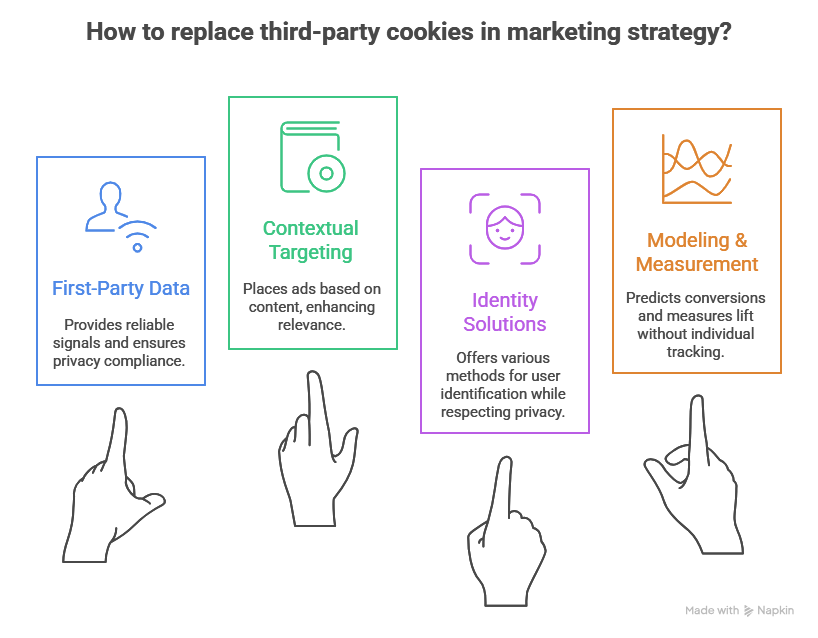
Here’s how you can replace third-party cookies:
1. First-Party and Zero-Party Data
First-party data comes directly from your audience through website visits, app activity, purchases, or subscriptions. It gives you reliable signals and keeps you within privacy rules.
Zero-party data is information people choose to share, like survey responses, preference forms, or profile updates. This type of data is highly valuable because users provide it willingly.
2. Contextual and Semantic Targeting
Contextual targeting places ads based on the content a user is viewing, not their past browsing. For example, showing a running shoe ad on an article about fitness.
Semantic targeting takes this further by using AI and natural language processing to understand tone, meaning, and themes in content. This makes ad placement much more relevant than traditional keyword targeting.
3. Identity Solutions
Marketers are testing several replacements for cookies:
- Deterministic IDs: Use hashed emails or login data to match users across devices with consent.
- Probabilistic IDs: Estimate user identity based on device type, browser, and patterns.
- Universal IDs: Shared identifiers created by industry groups and publishers.
- Publisher cohorts: Group users with similar behaviors into segments for safe targeting.
- Clean rooms: Secure environments to match and analyze data without exposing raw details.
- Cross-device graphs: Older solutions from Oracle, AdBrand, Crosswise, and Drawbridge that linked user activity across devices.
- Unified ID 2.0: A leading replacement for cookies that uses hashed emails to identify audiences in a privacy-safe way.
4. Modeling and Probabilistic Measurement
Since one-to-one tracking is limited, advertisers must lean on models and aggregated data. These systems use machine learning and statistics to predict conversions and measure lift instead of tracking every user.
Probabilistic measurement looks at large patterns and signals to estimate performance. This approach helps marketers understand effectiveness without violating privacy.
How to Build Cookieless Advertising Campaigns in 2025
Running ads without cookies may feel challenging, but the right steps can keep your campaigns strong and accurate. Here are practical strategies you can use today.
1. Strengthen First-Party Data Collection
Build direct connections with your audience. Encourage sign-ups, loyalty programs, and gated content to capture email addresses and preferences. Make sure users see value in sharing data, like personalized offers or exclusive access. The stronger your first-party data, the less you rely on third-party tracking.
2. Use Zero-Party Data for Personalization
Ask customers for information instead of trying to infer it. Surveys, preference centers, and feedback forms give you clear answers about what people want. This data improves personalization and shows users that you respect their choices.
3. Apply Contextual and Semantic Targeting
Place ads based on the content users are currently viewing. For example, show travel ads on a vacation blog or healthy snack ads on a fitness article. Go beyond keywords by using semantic targeting, which analyzes tone, intent, and meaning to make ad placements more accurate.
4. Partner with Publishers and Walled Gardens
Work closely with premium publishers who own valuable audience data. They often allow advertisers to target segments within their platforms while staying privacy-safe. Also, use walled gardens like Google, Meta, and Amazon, which still provide strong audience insights even as cookies disappear.
5. Test Identity and Universal ID Solutions
Adopt identity frameworks like hashed emails, universal IDs, and publisher cohorts. These methods let you target and measure campaigns without personal identifiers. Always test different solutions to see which align best with your audience and region’s privacy laws.
6. Use Data Clean Rooms for Secure Collaboration
If you need to compare your customer data with a publisher’s audience data, do it in a clean room. This secure setup lets you match insights and run analysis without exposing raw user information. Clean rooms are becoming a core tool in cookieless advertising.
7. Use AI and Machine Learning
Machine learning models can predict customer behavior and identify lookalike audiences. These tools help fill gaps left by cookies and make your targeting smarter. Use AI to optimize bidding, creative testing, and budget allocation across campaigns.
8. Focus on Measurement and Experimentation
Without cookies, testing becomes incredibly important. Run A/B tests, measure incrementality, and use aggregated reporting to understand performance. Accept that attribution will be modeled, not exact, and focus on proving lift rather than tracking every click.
How to Measure and Track Ad Performance Without Cookies
Measuring results is one of the biggest challenges in cookieless advertising. You can no longer rely on exact user-level tracking, so you need new ways to see what works.
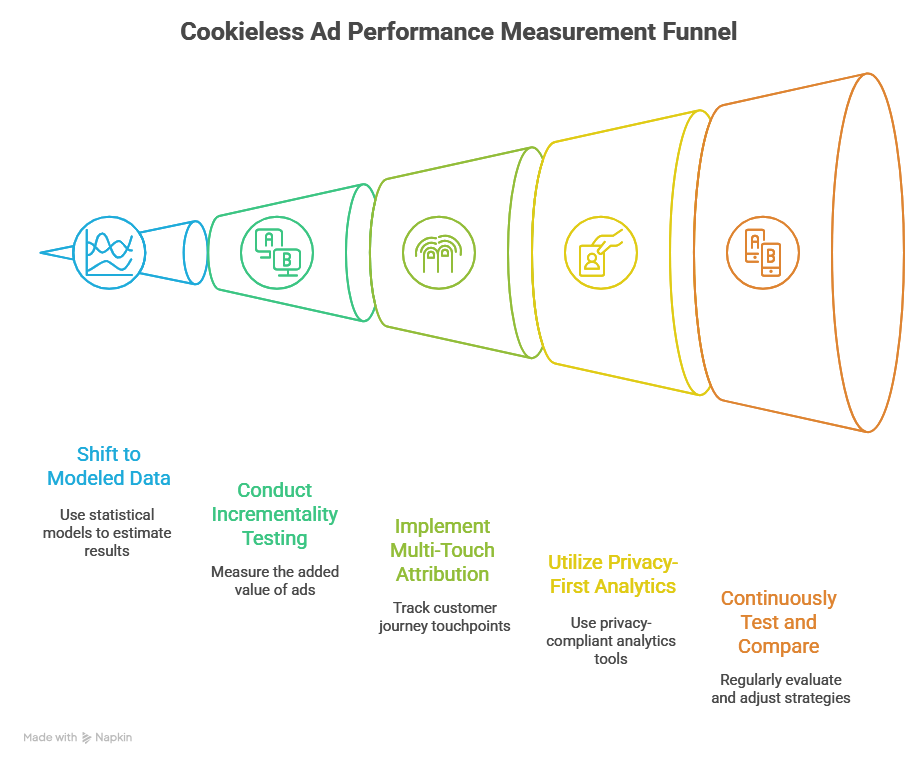
Here’s how you can measure and track ad performance without cookies:
- Shift From Exact Tracking to Modeled Data: Instead of following every single user, measurement now depends on patterns. Modeled data uses statistics and machine learning to estimate results. For example, you may not know if one user bought because of your ad, but models can show that a campaign increased sales overall.
- Use Incrementality Testing: Incrementality measures how much your ads add beyond what would have happened naturally. You can test this by running ads in one group and holding them back in another, then comparing results. This helps prove the real value of your campaigns.
- Try Multi-Touch Attribution in a Privacy-Safe Way: Even without cookies, you can still track multiple steps in the customer journey. Tools now use aggregated signals instead of personal IDs to connect touchpoints. This gives you a broader picture of how different channels work together to drive conversions.
- Rely on Privacy-First Analytics: Platforms like Google Analytics 4, clean rooms, and publisher dashboards are built for a cookieless world. They give aggregated insights while respecting user privacy. Use them to track traffic, engagement, and conversions in a way that is both reliable and compliant.
- Keep Testing and Comparing: Measurement is no longer a one-time setup. You need to constantly test campaigns, compare channels, and adjust your methods. By combining different methods like modeled data, incrementality, and aggregated analytics, you can build a clear view of performance without cookies.
Risks and Challenges in Cookieless Advertising
Cookieless advertising brings new opportunities, but it also creates problems that marketers must handle carefully.
1. Balancing Privacy and Targeting
Privacy rules make it harder to track users, which reduces targeting accuracy. On the other hand, focusing only on targeting can hurt trust. Marketers need to respect privacy while still delivering relevant ads. Striking this balance is one of the toughest challenges in 2025.
2. Dealing With Less Data
Cookies gave marketers detailed signals across websites and apps. Without them, data becomes thinner, and audience insights are harder to build. This can make targeting less precise and performance harder to measure. Marketers must find other ways to fill these gaps.
3. Handling Biased or Incomplete Models
Since direct tracking is limited, marketers rely on modeled data. These models can predict results, but are not always accurate. They can create bias or overstate campaign impact. Blindly trusting models without testing can lead to wrong conclusions and wasted ad spend.
4. Meeting Legal and Compliance Standards
Global rules like GDPR in Europe and CCPA in California set strict requirements for how companies collect and use data. Failing to follow these rules can result in large fines and negative press. Keeping up with changing laws across different markets is also a constant challenge.
5. Building and Keeping User Trust
Users know more about privacy now than ever before. They want control over how their data is used. If they feel their data is collected without clear permission, they may stop engaging with your brand. Earning and protecting trust is just as important as running effective ads.
Action Plan for Marketers in a Cookieless World
Making the shift to cookieless advertising can feel overwhelming, but a clear roadmap helps you move step by step. Here is a practical plan you can follow in 2025.
Short-Term Steps (Next 3–6 Months)
- Audit your current use of third-party cookies and tracking tools.
- Start building stronger first-party data through sign-ups, loyalty programs, and gated content.
- Test contextual and semantic targeting on smaller campaigns.
- Review privacy compliance processes and update consent management tools.
Mid-Term Steps (6–12 Months)
- Expand your zero-party data collection with surveys and preference centers.
- Partner with publishers who have strong audience data and test clean room setups.
- Look into universal ID frameworks and compare how they perform in your campaigns.
- Train your team to use privacy-first analytics tools such as GA4 or publisher dashboards.
Long-Term Steps (12+ Months)
- Build a culture of data transparency and trust across your brand.
- Invest in AI and machine learning tools to support predictive targeting and modeled attribution.
- Focus on incrementality testing to measure the true lift of your ads.
- Create long-term partnerships with compliant vendors and premium publishers.
Closing Thoughts — Future-Proof Your Advertising with Strategus
The end of cookies does not mean the end of effective advertising. This means that marketers must adapt to new tools, stronger data practices, and privacy-first strategies. Those who move early gain an edge, while those who wait risk falling behind.
If you want expert support in navigating this shift, Strategus is here to help. By partnering with Strategus, you get:
- Premium CTV and omnichannel inventory that connects your brand with engaged audiences.
- Advanced attribution tools to measure real impact across devices and channels.
- AI-driven targeting and optimization to maximize performance without relying on cookies.
- End-to-end campaign management, from strategy to reporting, handled by experts.
- Privacy-first solutions that keep your advertising compliant and future-proof.
Ready to get rid of your dependence on cookie data? Talk to a Strategus expert today and start building smarter campaigns.
Frequently Asked Questions
1. Will Cookies Disappear Completely?
No, cookies will not disappear overnight. Some browsers and platforms will still support them, but their role in advertising is shrinking fast. Since Apple and Google are pushing strong privacy rules, marketers must plan for a world where cookies are no longer dependable.
2. What Makes OTT and CTV Better Than Cookie-Based Ads?
OTT and CTV ads run on streaming platforms, so they do not depend on browser cookies. They use first-party and device-level data to target audiences with precision. This gives brands reliable reach, stronger engagement, and measurable results across multiple devices in one household.
3. How Can Small Businesses Prepare for Cookieless Advertising?
Small businesses should start by building strong first-party data through sign-ups, email lists, and loyalty programs. They should also test contextual targeting, look into low-cost OTT ad placements, and work with managed service providers like Strategus who simplify execution and measurement.
4. Is Investing in Identity Solutions Safe?
Yes, identity solutions like hashed emails, clean rooms, and universal IDs are built to respect privacy laws. They give advertisers new ways to target without exposing personal details. Always choose solutions from trusted providers that comply with GDPR, CCPA, and other privacy standards.
5. How Does Clean Room Technology Help Advertisers?
A clean room lets brands and publishers share insights without exposing user data. For example, a retailer can compare customer lists with a streaming platform to find overlaps, but no one sees raw data. This allows secure targeting and accurate measurement in a privacy-first way.
6. What Role Does AI Play in Cookieless Campaigns?
AI helps fill gaps left by cookies. It predicts user behavior, builds lookalike audiences, and improves ad optimization. It can also analyze large datasets to find patterns that guide budget allocation. This ensures campaigns remain efficient and accurate without relying on third-party cookies.
7. How Can Marketers Prove ROI Without Cookies?
Marketers can use incrementality testing, modeled attribution, and multi-touch analysis to show how ads drive results. These methods measure overall lift instead of individual clicks. Working with platforms like Strategus gives you access to attribution dashboards that simplify ROI reporting across CTV and digital channels.
8. Should I Still Spend Money on Facebook Ads After iOS 15?
Facebook ads still have reach, but they lost much of their precision after Apple’s privacy updates. For many advertisers, shifting part of the budget to CTV and OTT creates better returns. These channels allow stronger targeting, better data, and higher engagement in 2025.
9. What Mistakes Should I Avoid in Cookieless Advertising?
Do not rely only on one method, like contextual targeting, or assume modeled data is always correct. Avoid working with vendors who cannot prove compliance with privacy laws. Failing to collect first-party data is also a major risk because it leaves you dependent on others.
10. How Can Strategus Help Me Succeed in a Cookieless World?
Strategus simplifies the transition by managing your CTV and omnichannel campaigns end-to-end. You get premium streaming inventory, AI-driven targeting, and advanced attribution tools. Their team ensures every campaign is optimized and compliant, so you can focus on growth instead of technical challenges.a

Andy Dixon is a seasoned Content Writing Specialist at Strategus, renowned for his expertise in creating engaging and impactful digital content. With over a decade of experience in content creation, Andy has honed his skills in a variety of niches, ranging from technology and marketing to education.
Strategus is a managed services connected TV(CTV) advertising agency with over 60,000+ campaigns delivered. Find out how our experts can extend your team and drive the result that matter most.
Talk to an Expert
Seeking a Custom CTV Strategy That Delivers?
What to read next

Programmatic Display Advertising: A Practical Guide for Modern Marketers
Programmatic display advertising is a staple for most marketers. It's familiar, widely used, and often the default choice in digital campaigns. But...
11 minutes read

TV Attribution Explained: How CTV Delivers the Proof Traditional TV Never Could
Traditional TV advertising was a black box. You’d run a campaign, the media plan would look solid, and then… you’d wait. Maybe site traffic ticked...
13 minutes read

What Is Cost Per Acquisition and How Does CTV Fit In?
Marketers have been able to track the cost per acquisition (CPA) across digital channels using tracking pixels and attribution models to determine...
9 minutes read

What Is an Ad Exchange? How Programmatic CTV Buying Works
Ad exchanges power most of the ads you see on connected TV, but understanding how they work can feel like deciphering a secret code. SSPs, DSPs, data...
12 minutes read



